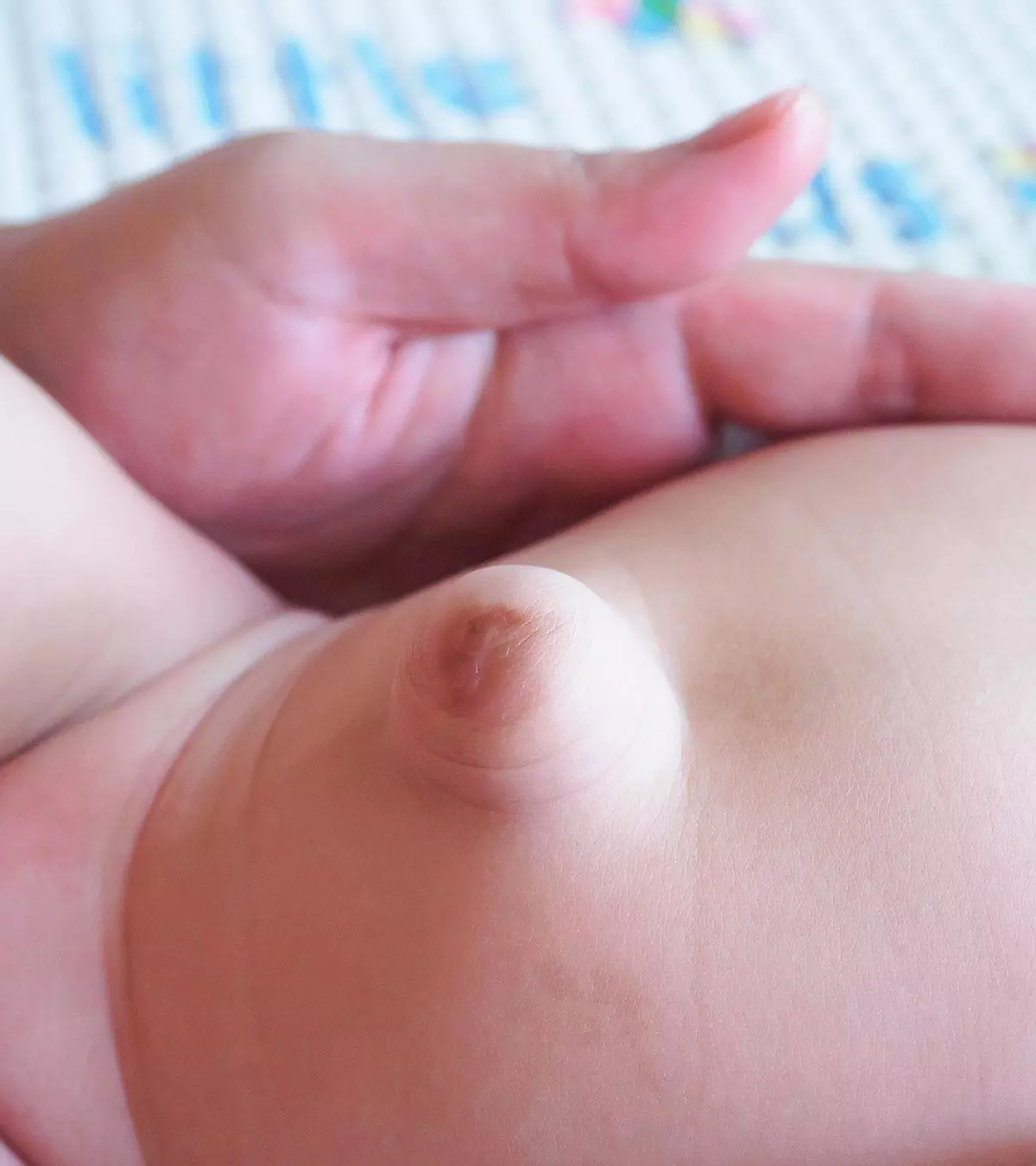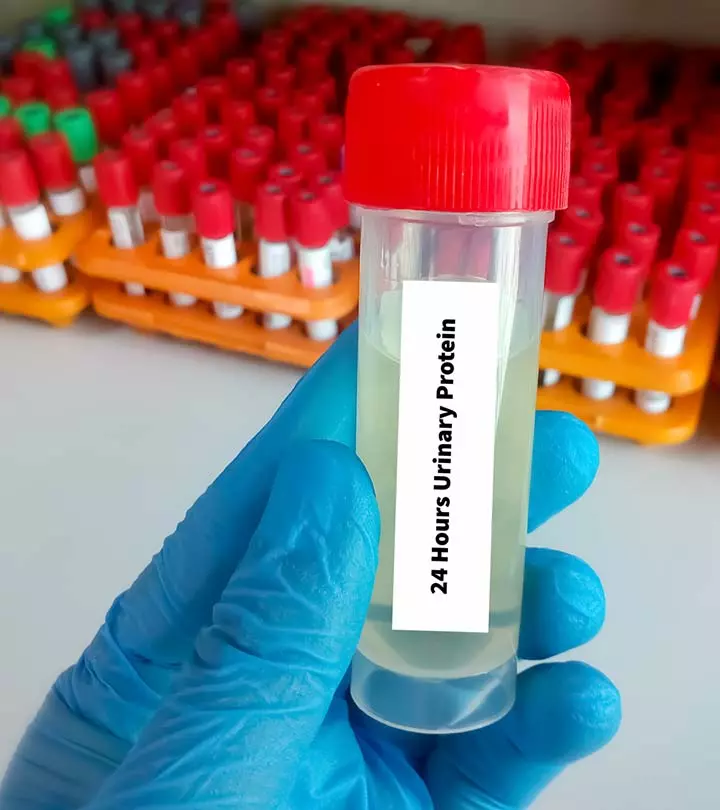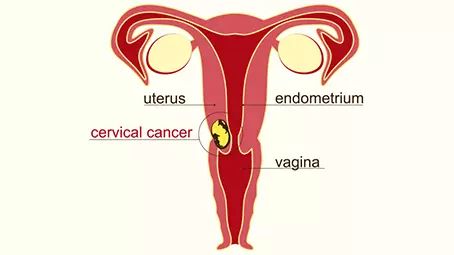
Image: ShutterStock
Parents often observe the color of their baby’s poop to ensure that they are pooping right. However, a change in bowel movements or poop’s color, such as black poop in babies, can raise concerns.

Baby poop can be of different textures, colors, smells, and consistencies. They can usually be seen in green, yellow, tan, brown, and some other colors as well (1). The usual color should be brown because of the bilirubin pigmentiThe yellowish pigment made by breaking down red blood cells that travel through the liver and excreted out of the body. secreted from the liver. The bilirubin flows into the small intestines and turns brown as it passes through the small intestines (2). However, any other color of poop in babies could be due to an underlying condition and may require doctor consultation.
Read on to know about black stool in babies, including its cause, meaning behind the colors, and when you should worry.
Key Pointers
- Black poop is common in babies and could be due to medications or food.
- You can manage it by discontinuing either a specific food or medication.
- Consult a doctor if you notice it for three or more days.
Is Black Stool In Babies Normal?

While black poop is common in newborns, you should be concerned if you notice it in your baby who is over three days old (3).
The first stool of newborns is called meconium. This sticky stool consists of amniotic fluidiA liquid in the amniotic sac that surrounds and protects the fetus in the womb during pregnancy , intestinal epithelial cells, lanugo, mucus, bile, and water swallowed in utero. Meconium is often black, green, brown, or yellow and passed 24 to 48 hours following birth. A study on full-term infants found that black stool was common during the first few days of life, likely due to meconium, but it became rare after the first week (16). If you notice black poop in a baby older than a week or even up to one year old, seek medical advice.
Several reasons could cause your baby to poop black or tarry feces. While black stools in babies can often be caused by food and medications, which is normal, black stools due to other reasons, such as bleeding in the stomach or any part of their digestive system or gastrointestinal tractiAlimentary or digestive tract , warrant immediate medical attention (4).
If your baby’s black poop is accompanied by a foul smell, it often signals a problem in your baby’s upper digestive tract (5).
 Quick fact
Quick factWhat Causes Black Poop In Infants?

Child specialist Dr. Mubina Agboatwalla says, “The most common cause of black poop is iron supplements or medications containing Bismuth. A potential concern is bleeding from the upper gastrointestinal tract, which may be due to gastritis, ulceration, cow’s milk intolerance, polyps, or clotting disorders. In such cases, the baby may exhibit other signs of systemic disease and anemia. Clinical history and investigations can lead to a correct diagnosis.”
The most common causes of black poop in infants include (4) (6)
- Specific foods
Foods such as blueberries, licorice, oreo cookies, dark chocolate, and grape juice can give your baby’s poop a tarry black color.
- Medications
Iron supplements and bismuth-containing medicines, such as Pepto-Bismol, can cause black poop in your baby. These are generally not a cause for concern.
- Digested blood
In some cases, babies digest blood that appears as black poop. This can occur if the baby is breastfeeding and has swallowed blood from the mother’s cracked, bleeding nipples. It may also happen if they ingest blood from nosebleeds or bleeding gums.
These causes are usually not concerning. However, black poop can also result from bleeding in the baby’s digestive tract. The bleeding can occur either in the upper or lower gastrointestinal tract.
The American Academy of Pediatrics (AAP) states that black stool in a baby’s first bowel movement (meconium) is normal and not worrisome. However, if it occurs later, it may indicate bleeding, as blood darkens in the intestinal tract over time, warranting medical evaluation (17).
Some concerning causes of back poop in babies include (7) (8)
- Internal bleeding such as bleeding in the esophagusiA muscular tube that passes food and liquids from the mouth to the stomach. , stomach, or upper part of the baby’s small intestine
- Gastritis — inflammation of the stomach lining
- Intolerance to milk protein
- Complications of the liver, such as cirrhosisiScarring of the liver tissue due to long-term damage to the liver
- Clotting disorders
- PolypsiA protruding growth of tissue on a surface inside your body or a mucus membrane
- Bleeding disorders such as hemophiliaiA bleeding disorder in which the blood does not clot properly or Von Willebrand diseaseiA bleeding disorder caused by insufficient clotting protein levels (rare)
Pediatrician Dr. Chetan Singh says, “In premature infants, serious gastrointestinal issues like necrotizing enterocolitis (NEC) may cause black stools. To diagnose NEC, tests such as stool examination for occult blood, complete blood count with coagulation profile, and imaging may be conducted. Parents may take a picture of the baby’s stool to show it to the pediatrician to aid in diagnosis.”
When To Seek Medical Attention For Black Poop In Babies?

If you find any of the following signs and symptoms along with your baby’s black poop, call their pediatrician right away (8).
- Dizziness
- Lightheadedness
- Fever
- Blood in the stools
- Vomiting of blood
- Child looking pale
How To Manage Black Stools In Babies?

Identifying the precise cause of black poop in babies is vital for its effective management. The following are some tips you may consider for managing your baby’s black poop.
- If your baby’s black poop results from taking a food item, discontinuing the food item can help resolve the problem.
- If the black stool is due to a medication, the healthcare provider may either stop or prescribe an alternative medicine to resolve the problem.
- If your baby presents other symptoms, the underlying cause needs to be identified and resolved. Diagnostic tests along with medical history and other investigations may be required to determine the cause of your baby’s black poop.
Other Colors Of Baby Poop
Apart from black, the following are other baby poop colors that may indicate an underlying problem.
1. Red poop

Also called bloody stools, 90% of red baby poop is not a result of bleeding. A large number of foods can cause your baby’s poop to turn red. These include beetroot, cranberries, tomato-based foods, and red Jell-O. However, this is usually harmless and disappears with a change in diet (4). Blood in baby’s stools might also result from cow’s milk protein allergy (CMPA), one of the most common causes of allergy in infants during their first year of life. According to experts, CMPA may develop in breastfed infants if their mother is drinking cow’s milk or consuming cow’s milk products. However, formula-fed babies may also develop CMPA if they consume cow milk-based formula (9). When combined with iron-containing infant formula, certain antibiotics like Cefdinir can cause red stools in infants (18).
In a few cases, red streaks on your baby’s diaper may indicate something more serious, such as (10):
- Constipation
- A small anal tear
- Bacterial diarrhea (due to infection caused by bacteria)
- Bleeding in the lower part of the digestive system
- HemorrhoidsiSwollen and enlarged veins in and around your anus and lower rectum, also called piles
 Be watchful
Be watchful2. White poop
This happens if your baby isn’t producing enough bile. Chalky white poop in babies is a cause for concern as it may indicate a liver or gallbladderiA small pear-shaped internal organ on the upper right portion of the abdomen under the liver problem (7). If you notice your baby passing white or pale gray poop, seek medical advice right away.
3. Dark gray poop
A dark gray baby poop indicates that the baby is not digesting food properly. This is common in formula-fed babies during digestion, as the formula can be difficult for babies to digest.
4. Dark green poop
Any shade of the brown or green baby stool is considered normal and often common in breast milk-fed babies (4). A watery and greenish poop in infants, on the other hand, is a cause for worry. Green watery baby poop is common with diarrhea and needs to be treated immediately (10).
5. Orange poop
An orange poop in babies is normal and is indicative of healthy breast milk or formula intake. Solid foods such as carrots or sweet potatoes may also cause orange stools in weaning babies. Additionally, maternal intake of foods or medicines with an orange food dye may get passed on to the baby through breast milk, causing an orange poop (11) (12).
6. Mustard yellow poop
A seedy and pasty mustard-yellow poop is normal in a healthy breastfed baby. Most formula-fed babies may also have a similar pasty poop consistency that is a similar shade of yellow (11) (3).
 Point to consider
Point to considerFrequently Asked Questions
1. Can formula cause black stool in babies?
Babies consuming an iron-fortified formula may sometimes pass dark green or greenish-black stools (3).
2. Does black stool in babies go away?
Black stool in babies can self-resolve in a day to a few days, depending on the underlying cause. If the baby shows black stool with other signs of poor health, consult a doctor.
3. Can bananas cause black poop in babies?
Bananas usually don’t cause black poop. However, you may notice black threads in your baby’s poop if they eat bananas. Those threads are the center part of the banana (13).
4. What is the poop frequency in infants?
Poop frequency in infants varies depending on various dietary factors. Most breastfed infants tend to poop more frequently when compared to formula-fed babies. The baby may pass several stools in a day to one stool every two to three days. Babies on a solid diet may have varying pooping patterns based on how much solid food they eat. Some babies may poop after each meal, while some may not have any notable pooping pattern. As they adjust to new foods, babies may experience reactions to certain foods (like beets or foods with artificial red colors) or medications or conditions like constipation, which could result in black stools (14) (15).
5. What does breastfed baby poop look like compared to formula-fed baby poop?
Generally, exclusively breastfed babies have watery and seedy stools that are commonly mustard-yellow in color. However, formula-fed babies tend to have mustard-colored poop that’s more paste-like in consistency (12). Also, breastfed babies have more frequent bowel movements compared to formula-fed babies (14).
6. Does the frequency of black poop vary with the infant’s age?
Black poop usually resolves within a few days and does not recur in babies unless there is an underlying factor or medical condition. A population-based study published in the British Medical Journal (BMJ) examined black stools in infants aged 4 weeks to 42 months and found that black stool is rare in this age group (19). Therefore, consult a healthcare professional to rule out any potential health concerns if you notice black stools in babies older than a month.
Black poop in babies is common for the first three days of life and is usually not a cause for concern. However, if your baby is older than three days and still passes black stool, it may be due to underlying factors, such as food or medications your baby is taking or digested blood. In some rare cases, the presence of black stools in infants and toddlers can be due to bleeding in the digestive system or other medical conditions that should be addressed. Hence, consult your doctor promptly if other symptoms, such as fever, blood in the stools, or lightheadedness, accompany the black stools.
Infographic: Uncommon Causes Of Black Poop
For most new parents, spotting an unusual infant poop color could raise concerns. Dark-colored baby poop is normal in the initial days after birth, but a few specific conditions that lead to black poop need to be treated in time. This infographic may help you understand the more severe causes of a baby’s dark or black stools.
Some thing wrong with infographic shortcode. please verify shortcode syntax
Are you worried about your baby’s poop? Learn what’s normal and what’s not with this comprehensive guide to understanding poop colors.
References
1. Bowel Movements in Babies; Regents of the University of Michigan
2. The Poop Palette: What Do All of Those Colors Mean?; Nationwide Children’s Hospital
3. The Color of Baby Poop and What It Means; Cleveland Clinic
4. Stools – Unusual Color; Seattle Children’s Hospital
5. Black or tarry stools; MedlinePlus
6. “The Scoop on Poop”; Manitoba Government
7. What can your child’s poop color tell you?; Johns Hopkins Medicine
8. Bloody or Tarry Stools; Nicklaus Children’s Hospital
9. Selma Aktaş et al.; (2017); Different presentations of cow`s milk protein allergy during neonatal period; The Turkish Journal of Pediatrics.
10. Stools – Blood In; Seattle Children’s Hospital
11. Inside a dirty diaper: Decoding baby poop colors; Akron Children’s Hospital
12. The Definitive Guide To Baby Poop; Northwell Health
13. Starting Solid Foods; UCSF Benioff Children’s Hospital
14. Baby Poop Guide; Children’s Hospital Colorado
15. Pooping By the Numbers; American Academy of Pediatrics
16. Solasaari T et al., (2025); Bowel function in a prospective cohort of 1052 healthy term infants up to 4 months of age; National Center For Biotechnology Information
17. The Many Colors of Baby Poop; American Academy of Pediatrics
18. Reese Graves and Sally P Weaver; (2008); Cefdinir-associated “bloody stools” in an infant; Journal of The American Board of Family Medicine
19. C D Steer et al., (2009); The variation in stool patterns from 1 to 42 months: a population-based observational study; BMJ
Community Experiences
Join the conversation and become a part of our nurturing community! Share your stories, experiences, and insights to connect with fellow parents.
Read full bio of Dr. Raju C Shah
- Dr. Chetan Singh is a senior resident doctor at Safdarjung Hospital, Delhi. He graduated from Vardhman Mahavir Medical College and is trained in advanced NRP at the Indian National Neonatal Forum.
 Dr. Chetan Singh is a senior resident doctor at Safdarjung Hospital, Delhi. He graduated from Vardhman Mahavir Medical College and is trained in advanced NRP at the Indian National Neonatal Forum.
Dr. Chetan Singh is a senior resident doctor at Safdarjung Hospital, Delhi. He graduated from Vardhman Mahavir Medical College and is trained in advanced NRP at the Indian National Neonatal Forum. - Dr. Mubina Agboatwalla is the head of the department of pediatrics at Karachi Liaquat Hospital, Pakistan. She has over 20 years of experience in the field of pediatrics and 50 research papers published in international journals including Lancet and JAMA. Dr. Agboatwalla is also a public health specialist specializing in preventive health including nutrition, breastfeeding and infectious diseases, especially diarrhea, polio, and tuberculosis. She has affiliations with the Center of Disease Control Atlanta (CDC), UNICEF, and WHO.
 Dr. Mubina Agboatwalla is the head of the department of pediatrics at Karachi Liaquat Hospital, Pakistan. She has over 20 years of experience in the field of pediatrics and 50 research papers published in international journals including Lancet and JAMA. Dr. Agboatwalla is also a public health specialist specializing in preventive health including nutrition, breastfeeding and infectious diseases, especially diarrhea, polio, and tuberculosis. She has affiliations with the Center of Disease Control Atlanta (CDC), UNICEF, and WHO.
Dr. Mubina Agboatwalla is the head of the department of pediatrics at Karachi Liaquat Hospital, Pakistan. She has over 20 years of experience in the field of pediatrics and 50 research papers published in international journals including Lancet and JAMA. Dr. Agboatwalla is also a public health specialist specializing in preventive health including nutrition, breastfeeding and infectious diseases, especially diarrhea, polio, and tuberculosis. She has affiliations with the Center of Disease Control Atlanta (CDC), UNICEF, and WHO.
Read full bio of Dr. Meenakshi Maruwada
Read full bio of Rohit Garoo
Read full bio of Ghazia Shah


















